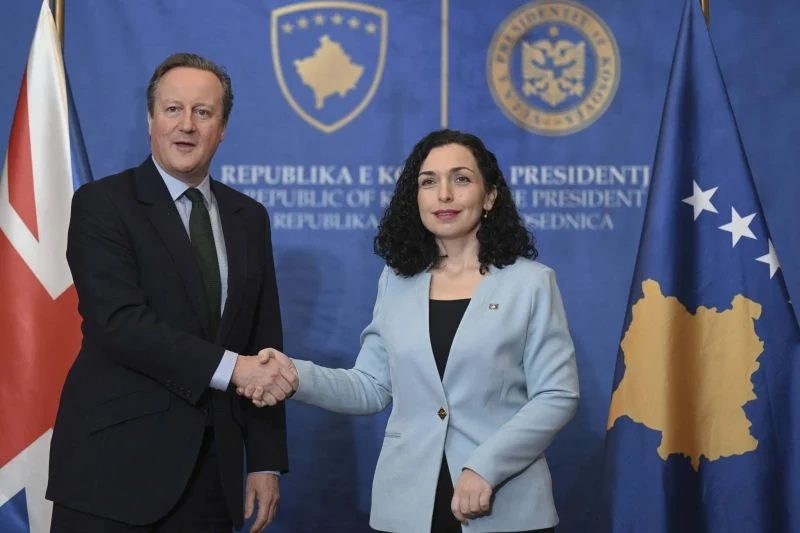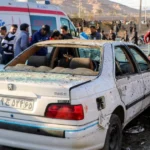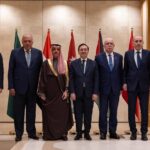British Foreign Minister David Cameron reiterated his country’s attachment to “stability” and “progress” in the Western Balkans on Thursday during a trip to Kosovo.
“We live in a world of great insecurity and great instability, a world of great conflict. This is a time when countries like Britain must support their friends, work closely on our important alliances,” said Ms. Cameron at a press conference, after speaking with the head of Kosovar diplomacy, Donika Gërvalla-Schwarz.
He stressed the importance of investing “in regions that have been unstable but are now showing good signs of stability and progress” citing “the importance (for his country) of stability in the Western Balkans.”
This is why “Great Britain is investing 45 million pounds sterling (52 million euros) this year,” said Mr. Cameron, who visited British soldiers from the peacekeeping force in the country (Kfor), led by NATO and which has 4,500 soldiers.
The British ranks within Kfor were reinforced, by 400 to 600 soldiers, after an attack at the end of September against the Kosovar police by a Serbian paramilitary commando, which reignited tensions.
David Cameron stressed the need for peaceful coexistence between Serbs and Albanians in Kosovo, which has a population of 1.8 million, including 120,000 Serbs.
The head of British diplomacy also expressed London’s attachment to the independence of Kosovo, proclaimed in 2008 by the former Serbian province but never accepted by Belgrade.
“We are a strong supporter of Kosovo’s independence, Kosovo’s sovereignty and its right to be recognized by other (countries) as a fully sovereign country and member of the family of nations,” Mr. Cameron.
Kosovo’s independence has been recognized by more than 100 countries, including the United States and 22 of the 27 member countries of the European Union, but not by Russia and China, Belgrade’s allies.
This article is originally published on .lorientlejour.com








